pee in compost versus on growing plants
Related Stories

GARDENING GUIDESGet on a Composting Kick (Hello, Free Fertilizer!)
Quit shelling out for pricey substitutes that aren’t even as good. Here’s how to give your soil the best while lightening your trash load
Full Story
EDIBLE GARDENSHow to Grow Your Own Sweet Summer Crops
This guide will help any gardener get started on growing the freshest warm-season veggies and berries for summer
Full Story
HOUSEPLANTSSimple Pleasures: Grow a Cheery Indoor Garden
Let houseplants work their magic on your rooms and you. These ideas will get you growing
Full Story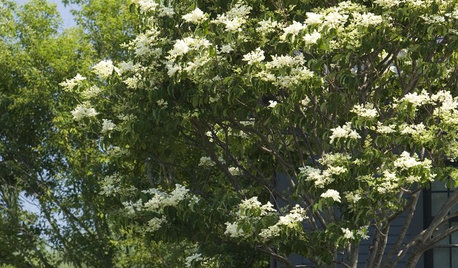
GARDENING GUIDESNo-Regret Plants: 5 Questions Smart Shoppers Ask
Quit wasting money and time at the garden center. This checklist will ensure that the plants you're eyeing will stick around in your yard
Full Story
GARDENING FOR BUTTERFLIES3 Ways Native Plants Make Gardening So Much Better
You probably know about the lower maintenance. But native plants' other benefits go far beyond a little less watering and weeding
Full Story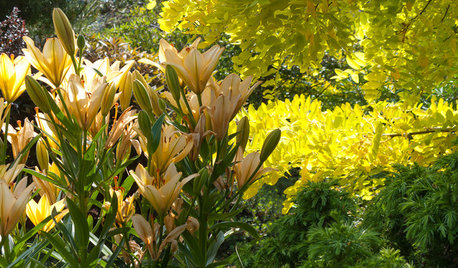
GARDENING GUIDESGreat Garden Combo: 3 Wonderful Plants for a Deer-Resistant Screen
Protect your privacy and keep deer at bay with a planting trio that turns a problem garden area into a highlight
Full Story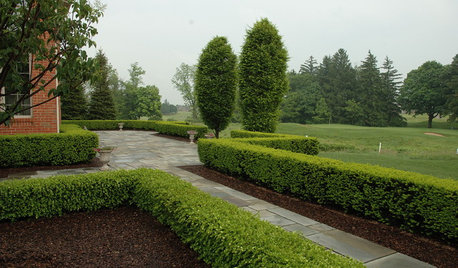
GARDENING GUIDESGreat Design Plant: Boxwood
This elegant evergreen can shape shift into forms limited only by a gardener's imagination and a clipper's reach
Full Story
GARDENING GUIDES10 Tips for Beginning Gardeners
With a simple sketch, basic tools and the right plants, you’ll be on your way to growing your first flowers or edibles
Full Story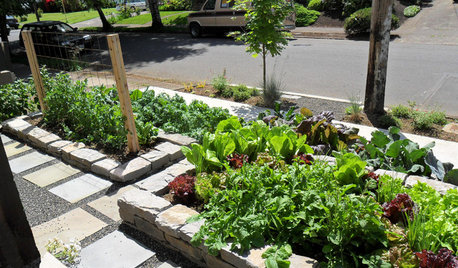
FRONT YARD IDEASWelcome Edibles Into the Front Yard for Fresh Food and More
Give your front yard design a boost and maybe even make new friends by growing fruits and vegetables
Full Story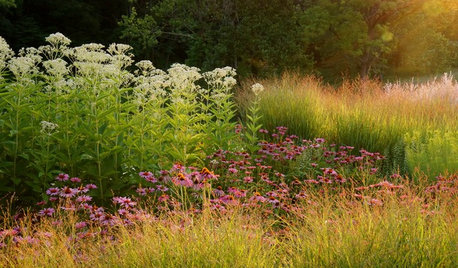
GARDENING FOR BUTTERFLIESGarden for Wildlife to Reap Rich Rewards
When you plant with animals and insects in mind, you make gardening easier, the planet healthier and yourself more present
Full Story






glib
planatus
Related Professionals
Erie Landscape Architects & Landscape Designers · Saint Louis Park Landscape Architects & Landscape Designers · Paradise Landscape Architects & Landscape Designers · Aberdeen Landscape Contractors · Andover Landscape Contractors · Cambridge Landscape Contractors · Commack Landscape Contractors · Fort Payne Landscape Contractors · Hawaii Landscape Contractors · La Verne Landscape Contractors · Lemont Landscape Contractors · North Highlands Landscape Contractors · Rio Linda Landscape Contractors · Sammamish Landscape Contractors · The Villages Landscape Contractorsdaninthedirt (USDA 9a, HZ9, CentTX, Sunset z30, Cfa)Original Author
pnbrown
daninthedirt (USDA 9a, HZ9, CentTX, Sunset z30, Cfa)Original Author
sffog
little_minnie
daninthedirt (USDA 9a, HZ9, CentTX, Sunset z30, Cfa)Original Author
tete_a_tete
glib
ceth_k
glib
disneynut1977 ~ Melissa
daninthedirt (USDA 9a, HZ9, CentTX, Sunset z30, Cfa)Original Author
tsugajunkie z5 SE WI ♱
little_minnie
daninthedirt (USDA 9a, HZ9, CentTX, Sunset z30, Cfa)Original Author
tishtoshnm Zone 6/NM
daninthedirt (USDA 9a, HZ9, CentTX, Sunset z30, Cfa)Original Author
glib
tishtoshnm Zone 6/NM
daninthedirt (USDA 9a, HZ9, CentTX, Sunset z30, Cfa)Original Author
daninthedirt (USDA 9a, HZ9, CentTX, Sunset z30, Cfa)Original Author
glib
daninthedirt (USDA 9a, HZ9, CentTX, Sunset z30, Cfa)Original Author
elisa_z5
glib
daninthedirt (USDA 9a, HZ9, CentTX, Sunset z30, Cfa)Original Author
glib
daninthedirt (USDA 9a, HZ9, CentTX, Sunset z30, Cfa)Original Author
glib
daninthedirt (USDA 9a, HZ9, CentTX, Sunset z30, Cfa)Original Author
garf_gw
daninthedirt (USDA 9a, HZ9, CentTX, Sunset z30, Cfa)Original Author
elisa_z5
daninthedirt (USDA 9a, HZ9, CentTX, Sunset z30, Cfa)Original Author